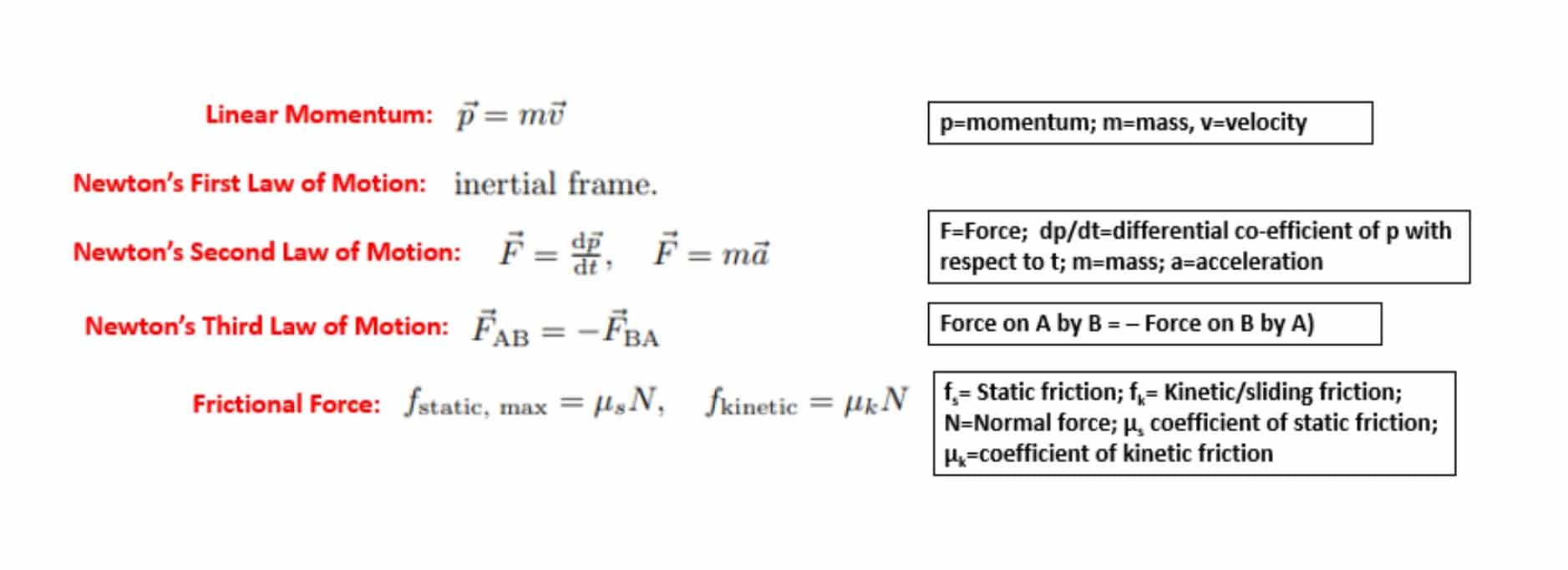NEET Physics Preparation Strategy – Top 10 Strategies Discussed
Most of the NEET aspirants believe that to become a doctor only an understanding of Biology is required. Well, then why Physics section is included in NEET? Is there any use of Physics in MBBS? The answer is “Yes”.
Physics has actually to do a lot in the medical field, for example, it is used in nuclear medicine, radiodiagnosis, biochemistry (modern physics), biophysics, and many more. It is a must for medical aspirants to study physics and that is why Physics is one of the sections in the NEET paper.
According to the NEET exam pattern, you need to attempt a total of 45 questions from the physics section carrying 180 marks in the exam. Therefore, to score good marks in NEET, one has to prepare the physics section well along with the other two sections that are Biology and Chemistry. Now, many aspirants find Physics challenging as it involves mathematical terms, formulas, theoretical concepts, and numerous numerical problems associated with each concept. As it is an important NEET subject, which requires an in-depth understanding of theories and concepts, preparation for this subject requires proper strategy.
Biotecnika here in this article provides you with the top 10 tips that will help you prepare strategically and effectively for NEET Physics.
NEET Physics Preparation Strategy
- Analyze syllabus systematically
One of the most important strategies required for NEET physics preparation is a well-organized as well as a systematic analysis of the syllabus. The NEET physics comprises 19 units including both class XIth and XIIth syllabus. The syllabus for NEET physics is provided below:
| PHYSICS SYLLABUS | |
| Class XIth | Class XIIth |
| Topics | Topics |
| Physical-world and measurement | Electrostatics |
| Kinematics | Current Electricity |
| Laws of Motion | Magnetic Effects of Current and Magnetism |
| Work, Energy, and Power | Electromagnetic Induction and Alternating Currents |
| The motion of System of Particles and Rigid Body | Electromagnetic Waves |
| Gravitation | Optics |
| Properties of Bulk Matter | Dual Nature of Matter and Radiation |
| Thermodynamics | Atoms and Nuclei |
| The behavior of Perfect Gas and Kinetic Theory | Electronic Devices |
| Oscillations and Waves | |
Analyses of the syllabus help you stay organized, you can plan your study topics starting from basics to complex topics and also, help you manage time as you can decide how many topics you have to cover in a particular time period. Don’t forget to paste a hard copy of the syllabus into your study table. As you cover the topics, mark it done in the syllabus, this will give you a sense of attainment and encourage you to study more.
- Optimize your day
To crack the NEET exam, developing as well as strictly following a study schedule is a must. Prepare a weekly achievable timetable. Some important points that you have to keep in mind while making a schedule are listed below.
- Start small, don’t hurry to finish the entire physics chapter in one day. For example, instead of devoting 4-5 hours to one chapter in one day, you can devote one hour daily for 5 days to complete a chapter.
- Select one easy topic and one that you find hard to study in one day.
- If you study just one topic for the entire day, you will quickly get bored and lose interest in the subject. Therefore it is a must to bring variation to your study. Let’s say you selected the topic, Newton’s Second Law of Motion so divide your study time slots for different activities. For example, in the 1st slot, you can learn concepts/ formulae, in the 2nd slot practice MCQs/previous year question paper based on this topic, and in the 3rd slot, you can revise. Repeat the same for the next Physics topic.
- Analyze your concentration as well as energy levels throughout the day and identify the best study time for you. For example, for most of the aspirants morning time is the most productive period, ideal for learning basic concepts but for some it is evening.
- Study continuously for 45 minutes time period without getting distracted or fatigued. Although it might feel impossible in the beginning, you can make it a habit by practicing daily. Let’s say at the beginning of your preparation you were able to focus for just 20 minutes, so the next day tries to study without distraction for 25 minutes, once you can do so, increase the time period to 30 minutes and practice until you reach to your target of 45 minutes continuous study.
- Take a short break of 10-15 minutes after study of 45 minutes and then study again for the next 45 minutes.
- Study all chapters or topics.
- Solve Multiple choice questions (MCQs) based on the topic you are studying.
- Do some meditation or breathing exercises to keep yourself calm and stress-free.
3) Build Conceptual Clarity
From physics usually, numerical-based questions are asked in exams, and to solve such questions, it is a must to have a thorough understanding of basic concepts including formulas. For some students, physics numericals are a sort of a nightmare and as a result, they ignore it or don’t practice enough for exams. This leads to scoring low marks in this section in the exam affecting their overall score. Also, many aspirants use rote-learning techniques to study physics which is based on simple memorization of concepts and is not the correct approach. For Physics you need to emphasize building conceptual clarity rather than rote-memorization. Understand the basic concepts and correlate them with their applications. Similarly when learning formulas/equations, never think of simply memorizing them, rather focus on their derivation, and understand their application.
4) Emphasize Important topics first
Preparation for NEET requires smart study, and for this, it is a must to know about important topics of physics. Always emphasize important topics first as these topics carry more weightage and changes of getting questions from these topics are more in the exam. The must-do chapters identified on basis of analysis of previous year’s question paper from NEET physics are listed below:
- Mechanics: Focus on topics like Kepler’s law, gravity, collisions and energy, dimensional and error analysis, conservation of momentum, laws of motion, Reynold’s number, viscosity, Pascal’s law, common forces mechanics, Bernoulli’s principle, waves (longitudinal, transverse, standing and beats), Doppler’s effect, reflection, superposition, spring potential energy, motion (projectile and circular), satellites, and most importantly kinematics.
- Electrostatics & Magnetism: Focus on topics especially numericals based on electrostatic potential, work done, electric and magnetic fields, potential energy in external fields, Torque on a current loop, cyclotrons, and magnetic dipoles.
- Heat & Thermodynamics: Must do topics is Newton’s Law of Cooling, heat transfer, refrigerators, thermodynamics law’s principles, heat engines as well as pumps, specific heat capacity, calorimetry, transfer of thermal expansion, Carnot engine-Efficiency, mean free path, Coefficient of Performance and the energy equipartition law.
- Modern Physics: Dual nature of matter, Nuclear Fission as well as Fusion, X-rays, Radioactive Decay of Substances, and Bohr’s Model are some of the must-do topics.
- Electronic devices: Focus on topics like electronic waves, semiconductors, p-n junction diodes such as Zener diode, Photodiode, LED, solar cell, action, and transistors, as well as analog signals, Logic gates.
5) Refer Right Books
It is one of the most important points of the NEET Physics Preparation Strategy. It is a must for every NEET aspirant to study from the NCERT physics textbook of class XIth and XIIth both. Make sure to study all the problems along with their solutions given in NCERT thoroughly as it can be a potent question and can be asked in exams. Also, don’t forget to revise and practice every question given at the end of a chapter in NCERT properly. However to understand concepts in detail and to practice numerical problems you can also refer to books listed below:
- Concepts of Physics by H. C. Verma
- Problems in General Physics book by I.E. Irodov
- A to Z physics for NEET
- 34 Years Chapterwise Topicwise Solved Papers NEET Physics 2022 Arihant Publications
- MTG Objective NCERT at your Fingertips (Physics)
- Objective Physics By DC Pandey
- Fundamental Physics by Pradeep
Kindly note you need not refer to all the books mentioned here, remember NCERT physics textbooks of class XIth and XIIth is must, other than NCERT you can refer anyone or 2 standard reference books, according to your requirement that is whether you need a book to clarify the concepts or need to practice Multiple Choice Questions (MCQs) or both. To know more about the books that will help you in NEET preparation check our article “Latest 2023 Booklist for NEET exam Super preparation” (link).
6) Prepare Formula Notebook
To learn and memorize all the physics formula is quite challenging. Nobody can do this in one single day. Frequent revision is a must and for this, it is important to note down all the formulas separately in a notebook. The advantage of making a separate notebook is that it allows you to revise faster as well as frequently without opening your textbook every time. You can also make a formula chart and paste it on your study table or wall of the room so that whenever you see them, you can revise. Make sure you follow the same order as given in NCERT, starting from noting the formulas of the very first chapter to the last, and also note the formulas for one chapter at one place as this will help you in the organized study. For example, from the chapter “Laws of Motion”, you can note the formulas as shown below:
NEET Physics Preparation Strategy – Prepare Formula Notebook
7) Revise frequently
To remember and to recall a large amount of information at the time of exam like formulas, concepts, it is essential to do regular revision. Every NEET aspirant must develop the habit of frequent revision. Usually, the revision process of physics subject varies from other two NEET subjects that is Chemistry as Biology as in physics simply knowing the concept, definition or formula is not enough. You need to learn problem-solving skills. The effective revision of NEET Physics can be done as follows:
- Go through important physics concepts given in NCERT or you can refer to your hand-made notes. Remember revision doesn’t mean reading NCERT line by line. Focus on main points.
- Read the chapter summary.
- Revise the formula chart frequently
- Focus more on weak topics.
- Solve previous year’s question papers
- Practice mock tests
- Do an analysis of the attempted mock test, this will help you identify what mistakes you were making while solving the paper and which concepts you need to revise again.
- The best way of revision is to teach your friends, this allows you to reinforce what you have learned.
8) Use smart study tools
Find your way of learning physics in an easier and faster way. There are numerous strategies available that will help you study physics concepts more effectively. You can utilize smart study tools like mind-maps, flashcards, flowcharts, Mnemonics, etc. For example, you can use the Mnemonic “Good Honey Tastes Sweet” to learn Gibbs Free energy formula ∆G=H-T∆S. Flashcards is also one of the most effective strategies for learning, & revising concepts or topics in NEET preparation. You can make your own flashcards or several online flashcards are available that you can also use to study Physics.
9) Practice numerical daily
In Physics simply knowing the formulae is not sufficient, you need to understand the application of formulas in solving questions. The more you practice numericals, the better you will understand the application of formulas. Practice 5-6 numericals daily. Start with simple numerical problems and then move to problems that you find complex. To solve numericals you need to have a basic idea about simple mathematics. Go through basic trigonometry formulae, differentiation, integration, taking logs, antilogs.
10) Practice previous year question papers
Regular practice of the previous year’s question paper introduces you to various kinds of questions, helps you understand exam level, allows you to identify important topics, and also helps in learning to implement the concepts while solving the questions. Read the question carefully, think about which concept this question is based on, and then start solving. If you are not able to solve it, revise the concept again on which this question is based or go through the solved papers. The next day tries to solve the same question again and also questions of its kind. Make sure you set a timer when you solve questions, practice time management during solving questions as the NEET physics section is all about the tricks + speed. Maybe in the beginning you might find difficulty in solving some questions, but don’t lose hope as the more you practice, the more you will learn.
So, prepare your NEET physics section using the strategies mentioned above and you will certainly achieve full marks in this section in the exam.
All the Best!
Keywords: NEET Physics Preparation Strategy, How to prepare for NEET Physics, NEET Physics Preparation, Prepare for NEET Physics Exam






































